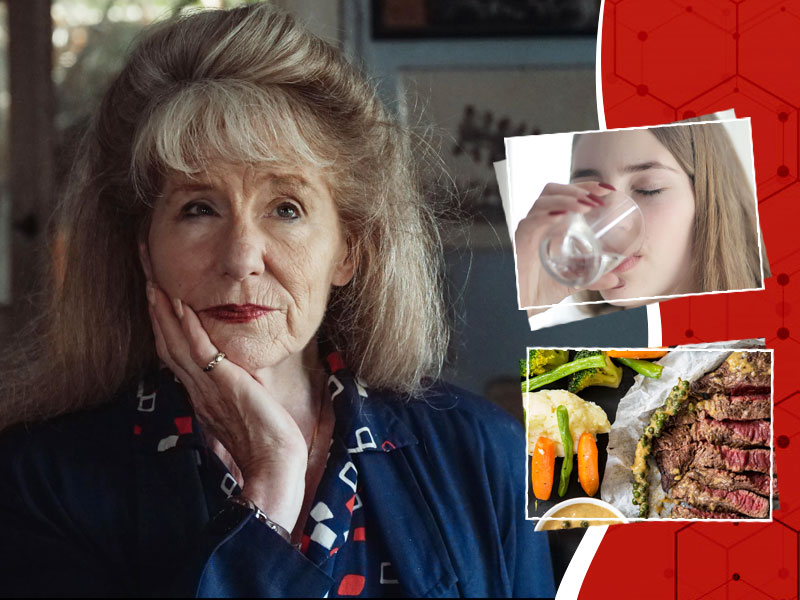
Well getting old might seem as a challenge to many people but is not always like that. There are people that enjoy their ageing and the process as well. However while you are going towards your 50’s, you need to take care of the dietary and nutrition changes. Your body does not remain as efficient as it was before and therefore it is important to switch to a more appropriate diet that can keep your healthy. This also involves taking balanced diet and emphasising on nutrients that can sustain your muscle strength and reduce inflammation. Today we will look at dietary changes that could be effective for healthy ageing after a turning in 50’s.
Table of Content:-
What is Healthy Ageing?
It is important to understand that healthy ageing means to have balanced nutrients in your body that can help the body to provide adequate functions for longer duration. After 50 years of age, the demands of nutrition changes as activities and physical work decreases. Also the muscle starts getting deteriorated at a higher rate which could cause osteoporosis. Therefore controlling and tweaking your diet can help you sustain your ageing process for longer duration.

According to changes in your lifestyle you need to start taking in more protein in designated amounts, vitamin B12, vitamin C and D, fibres and calcium. This is to increase bone mineral density and provide anti-inflammatory benefits to the body. Proper diet helps to prevent health adversities and reduces risk of cardiovascular problems.
Dietary Changes for Healthy Aging
1. Increase your calcium intake
One of the most common problems that are faced by people in old age is related to their bones. Bone health starts decreasing that causes complications such as osteoporosis, arthritis and more. Chances of these conditions need to be reduced by taking in sufficient calcium that improves nerve function, bone health and heart muscle contractions.
High calcium foods include-
- Leafy vegetables
- Milk, cheese yogurt
- Soya and almond milk
2. Proteins are important
High protein diet is important while aging and moving towards late 50’s because the muscle mass also decreases. To reduce the reduction of muscle mass, you need to have more proteins that help to create strong immune system and preserve lean muscle mass. For this you need to have foods such as-
- Fish
- Lean meat
- Poultry products
- Eggs
- Nuts and seeds
- Beans and lentils
You need to be careful that you take proteins in adequate amount; too much protein can also be harmful at older age.

3. Vitamin-D should be taken regularly
Vitamin D is an important aspect of health. This becomes more vital in regards of healthy ageing because this vitamin reduces risk of many diseases that prevail in older age. Vitamin D is also known as sunshine vitamin because you can get it directly from sunlight which can provide you with many benefits. It helps to decrease mental decline, poor heart health, depression, osteoporosis, type-2 diabetes. Vitamin D also provides with stronger immune functions to keep all other systems functioning.
Also Read- Do Not Let These Myths About Seafood Fool You, Check True Facts Here
4. Eat mostly whole foods after 50’s
Try to have more of whole foods such as whole wheat breads, oats, brown rice, etc. Basically after a certain age you need to cut down your processed food intake from your system. This is because they are hard to digest and it could pose issues with your bowl movements as well. It increases risk of inflammation in the body which can create health problems. Hence as a part of healthy aging, try to avoid processed food.
- Include fresh fruits and vegetables
- Whole grain oats, brown rice, whole wheat bread
- Proteins such as meat, poultry, fish and eggs
- Healthy fats including nuts and seeds, avocados and certain types of oil
5. Choose water as your main beverage

Most of the beverages are high in additive sugars and causes weight gain, heart diseases, obesity and diabetes. Hence to avoid these problems and continue healthy ageing process, you need to avoid any type of beverage from the market and focus on real foods that are more nutritious. The only beverage you should take is water which helps to remove toxins from blood and provides anti-inflammatory benefits in the body.
Also Read- 5 Natural Supplements To Fight Inflammation And Boost Holistic Health
6. Omega-3 fatty acids should be taken once per day
Usually younger adults are not in a habit of eating omega-3 fatty acids regularly. When you grow up and are moving towards your old age, it is important to increase the amount of omega-3 fatty acids in your diet. This is because it reduces risk of diseases such as Alzheimer’s, mental decline and other neurological disorder. It also reduces risk of dementia and provides better heart, brain and skin health.
Picture Credits- pexels.com
Also watch this video
How we keep this article up to date:
We work with experts and keep a close eye on the latest in health and wellness. Whenever there is a new research or helpful information, we update our articles with accurate and useful advice.
Current Version
